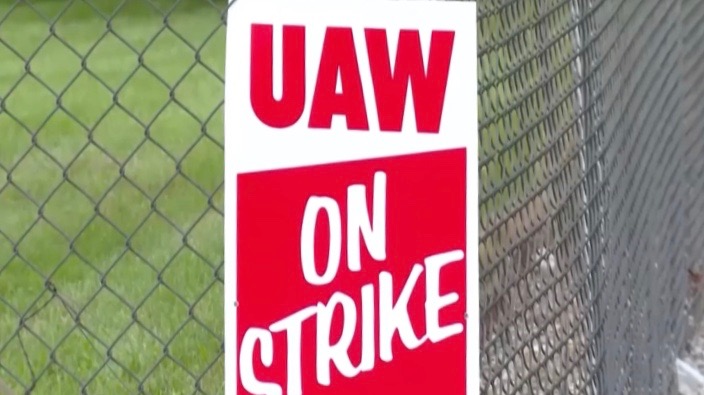The world’s largest agricultural machinery corporation, John Deere, is facing a looming strike action by thousands of workers in several plants in the United States. After overwhelmingly rejecting a six-year contract offer by the company on Sunday, October 10, union locals of the United Auto Workers (UAW) have announced a strike deadline of October 13 for the company to respond with an offer that concedes the demands of the workers.
If the company does not come up with a better contract offer for the thousands of workers employed across three States, John Deere is set to face possibly the biggest strike action in recent US history.
Sunday’s vote held among UAW locals organizing workers in 12 John Deere plants across the States of Illinois, Iowa and Kansas, representing around 10,100 workers, had over 90% of the members voting against the contract negotiated by the company with UAW negotiators. None of the locals reported a ‘No’ vote below 85% of the voting members.
This is the first time since the UAW strike of 1986 that John Deere workers have rejected the company’s contract offer. The 1986 strike organized by UAW went on for more than five months and eventually ended in a victory for the workers. The same locals have voted again to authorize a strike by a near-unanimous vote of 99%, making the current mobilization a historic one.
UAW negotiators were in talks with John Dreere for weeks before arriving at the voted down tentative contract on October 1, when the union officials extended the expiry date of the previous contract from October 1 to October 13. Once the details of the plan was released, UAW members vehemently opposed the contract proposals.
The main point of contention for workers was the three tiered-system of wages and benefits, which added another tier of workers on top of the already two-tier system. According to the proposal, newer workers hired after September 2021 will not be eligible for pensions. They will instead be put on a cash-balance plan and will see a contribution from their wages into a pension fund under the 401(k) plan.
The system also only offers those hired before 1997 a full pension and post-retirement health coverage, at par with what they were offered under their current employee plan. Those who were hired between 1997 and 2021 were not eligible for post-retirement health insurance and would be given only a third of the pensions that the pre-1997 employees would enjoy.
For wage hikes, the two-tier system is in place, with higher-skilled factory hands employed before 1997 being offered a 6% wage hike, and post-1997 workers a 5% hike on an immediate basis. The minimum wage for lower-skilled workers went up by USD 0.96 per hour to USD 20.10 per hour, and higher skilled workers were offered an hourly hike from USD 1.71 to USD 30.30 per hour.
Workers have reportedly claimed that the company has short changed them despite earning record profits over the past fews years. Speaking to Des Moines Register, Diana Scwartz, a worker and UAW member, stated that the company “long forgot who really does the work. John Deere’s been a bully since ’97, on the playground with the UAW. They bullied the UAW around and got away with it. It’s time we stood up. We deserve more.”
John Deere is the largest agricultural equipment and machinery company, employing close to 70,000 workers around the world as of 2020. Most of its operations are concentrated in North America. The company reported USD 15 billion in profits over the course of the last six-year contract, which will expire on October 13.
John Deere is also expected to earn between USD 5.7 billion to 5.9 billion in profits in the current fiscal year, a record annual profit in the company’s history.





